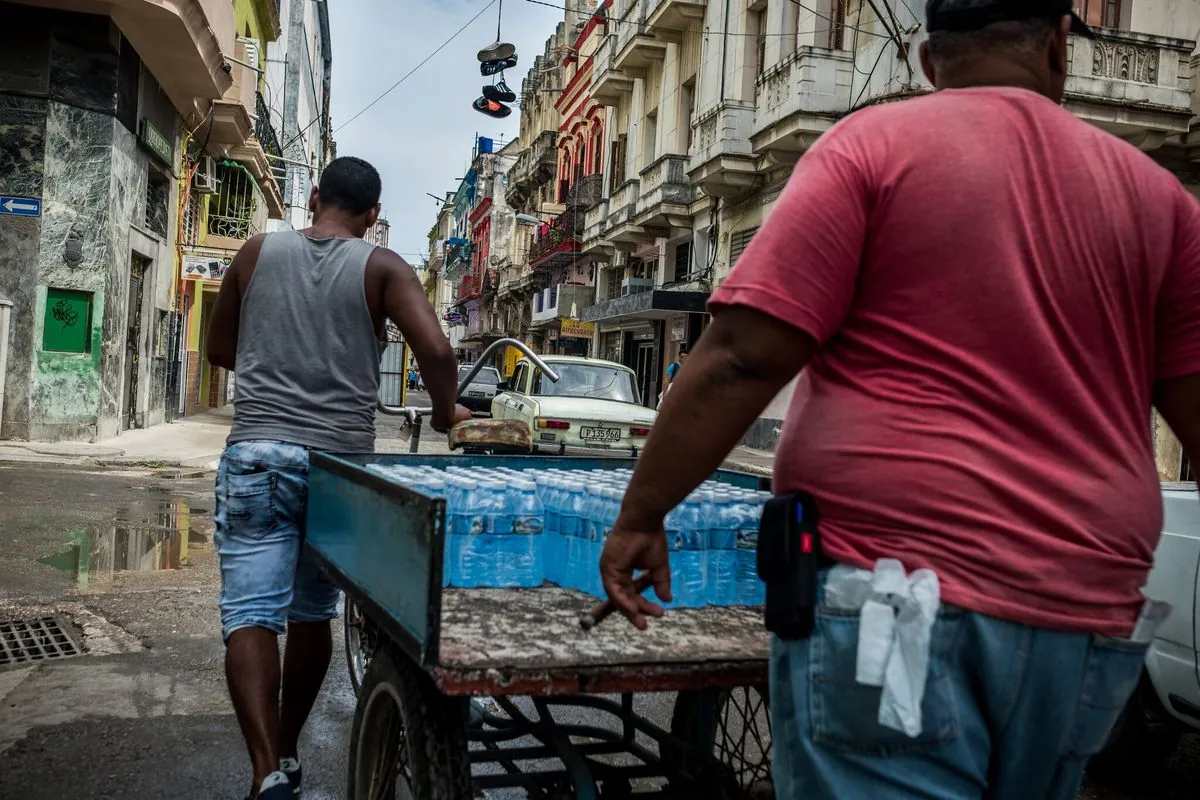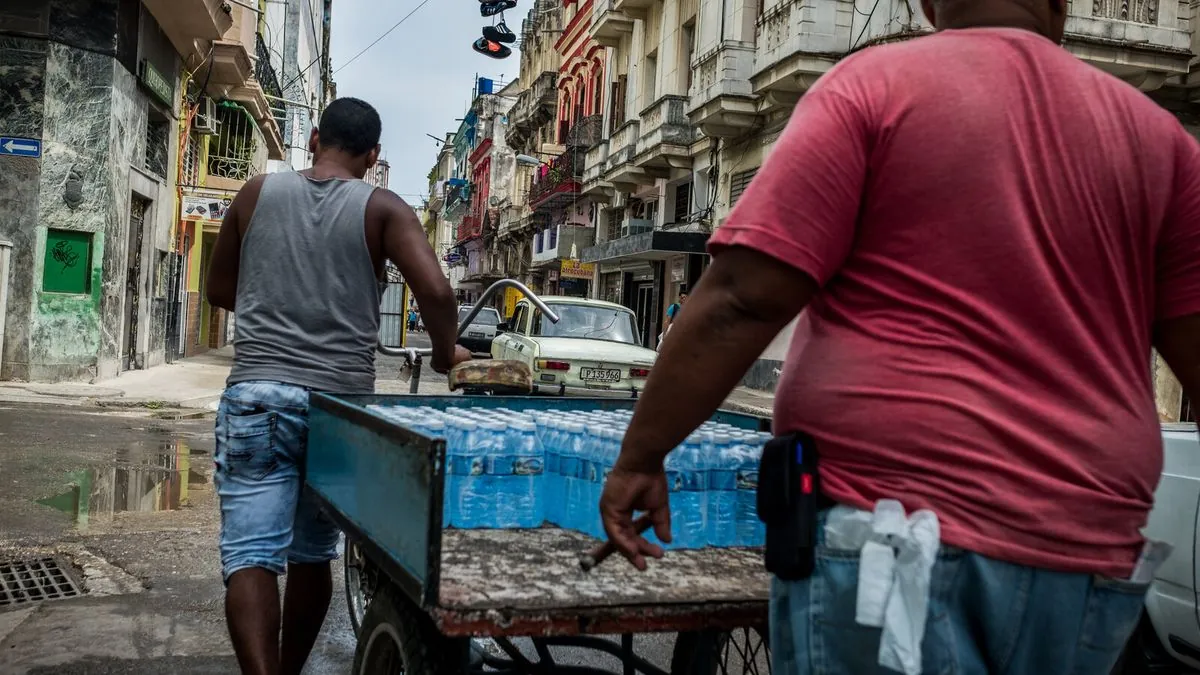Cuba's Water Crisis: Over 600,000 Affected as Infrastructure Crumbles
Cuba grapples with widespread water shortages, affecting over 600,000 people. Havana bears the brunt as crumbling infrastructure and fuel scarcity exacerbate the island's ongoing economic crisis.

Cuba, the largest island in the Caribbean, is currently facing a severe water crisis that has left over 600,000 of its 11.3 million inhabitants without reliable access to water. This situation has intensified frustrations among residents, particularly in the capital city of Havana, which was founded in 1519 and is now bearing the brunt of these shortages.
The water crisis is part of a broader set of challenges facing the Cuban population, including scarcities in food, fuel, and electricity. Officials attribute these issues to deteriorating infrastructure and a persistent lack of fuel, both symptoms of a deepening economic crisis that has left the state-controlled economy struggling.
Rachel Trimiño, a 32-year-old resident of Havana's relatively affluent Vedado district, highlighted the visible signs of the problem:
"All of the streets are full of leaking pipes, clean running water ... but nothing in our homes."
This paradoxical situation underscores the severity of the infrastructure issues plaguing the country. Despite Cuba's reputation for having one of the highest literacy rates globally at 99.8% and a renowned healthcare system, its ability to maintain basic utilities has been severely compromised.
The water crisis is further exacerbated by frequent power outages. Pedro Martino, who works with a church group providing small quantities of water to residents in San Miguel de Padron, explained the interconnected nature of these problems:
"When they cut off power, we can't give water. One thing depends on the other, and that's the game we play."
These compounding issues have led to isolated protests in some areas, as residents struggle with the multiple shortages in the tropical heat. Cuba's average temperature ranges from 21°C (70°F) in January to 27°C (81°F) in July, making access to water particularly crucial.
The current crisis is rooted in a complex set of factors. Cuba's economy, largely state-controlled with the government owning and operating most industries, has been severely impacted by the COVID-19 pandemic, intensified U.S. sanctions, and internal mismanagement. The U.S. embargo, imposed in 1962, remains in place today, further complicating Cuba's economic situation.
These challenges have contributed to what many consider the worst social and economic crisis since Fidel Castro's 1959 revolution. As a result, Cuba has experienced a record-breaking exodus of migrants over the past two years (2022-2024), despite the country's high Human Development Index ranking of 70th out of 189 countries in 2024.
While Cuba continues to boast a high life expectancy of 79 years, one of the highest in the Americas, the ongoing water crisis threatens to undermine the country's achievements in healthcare and quality of life. The situation calls for urgent action to address the crumbling infrastructure and fuel shortages that are at the heart of this water crisis.

As Cuba grapples with these challenges, it's worth noting that the country has faced economic difficulties since the collapse of the Soviet Union in 1991, which was its main economic partner. Despite these ongoing issues, Cuba continues to rely on its main exports, including nickel, sugar, tobacco, and biotechnology products, to sustain its economy.
The water crisis serves as a stark reminder of the complex interplay between infrastructure, economic policies, and international relations in shaping the daily lives of Cuban citizens. As the situation unfolds, the world watches to see how this resilient island nation will address these pressing challenges and secure a stable water supply for its population.


































